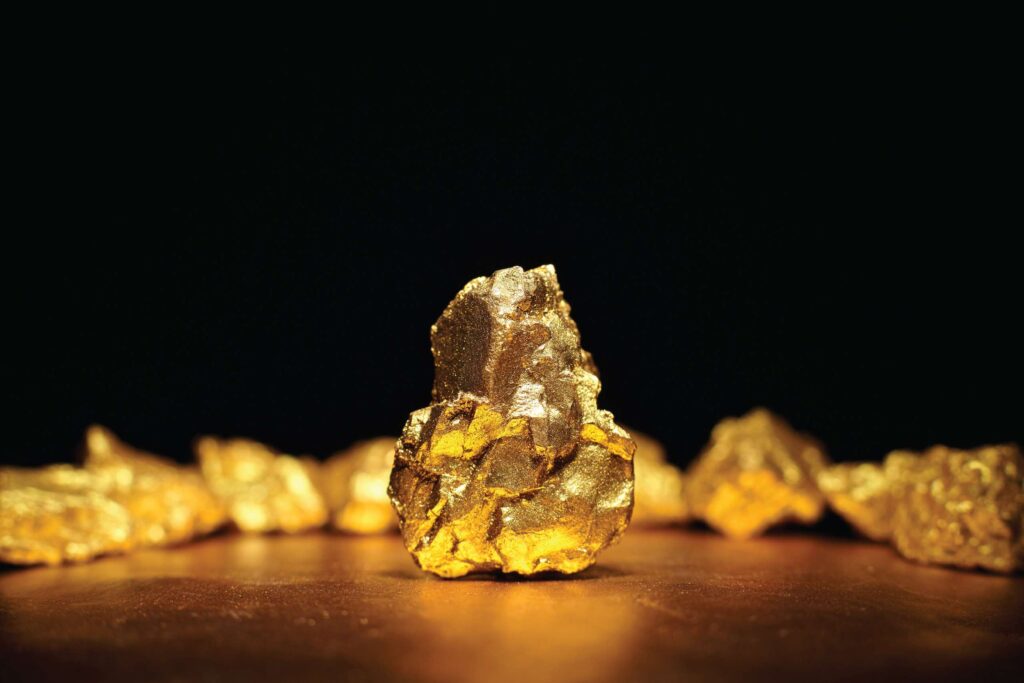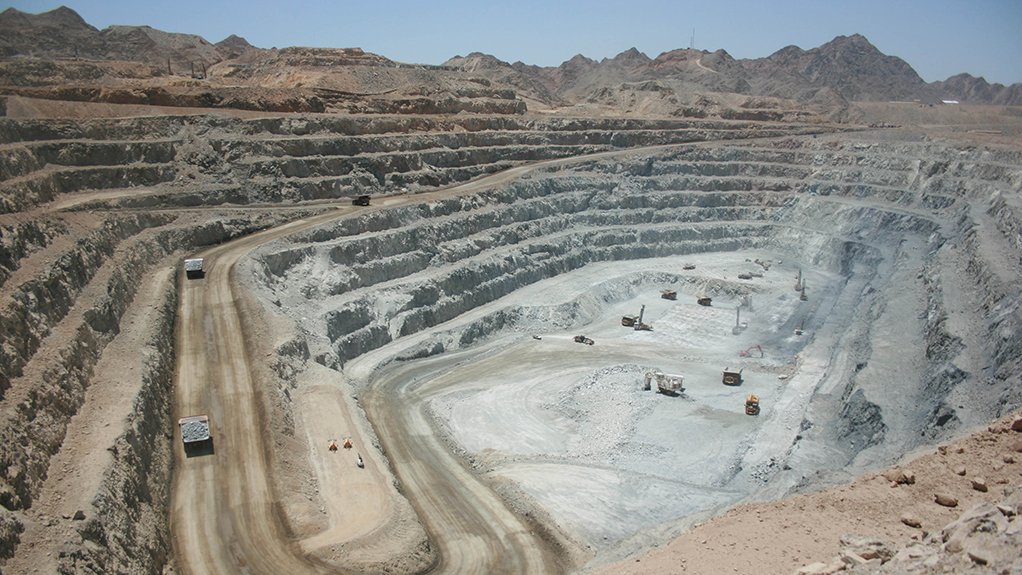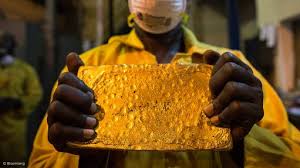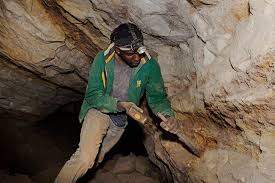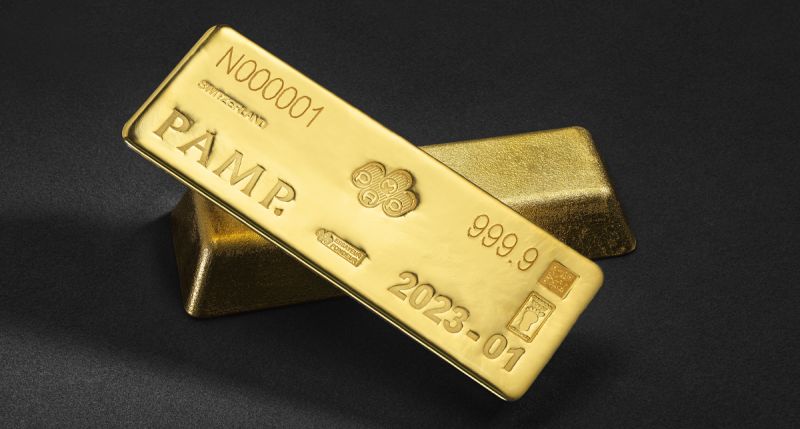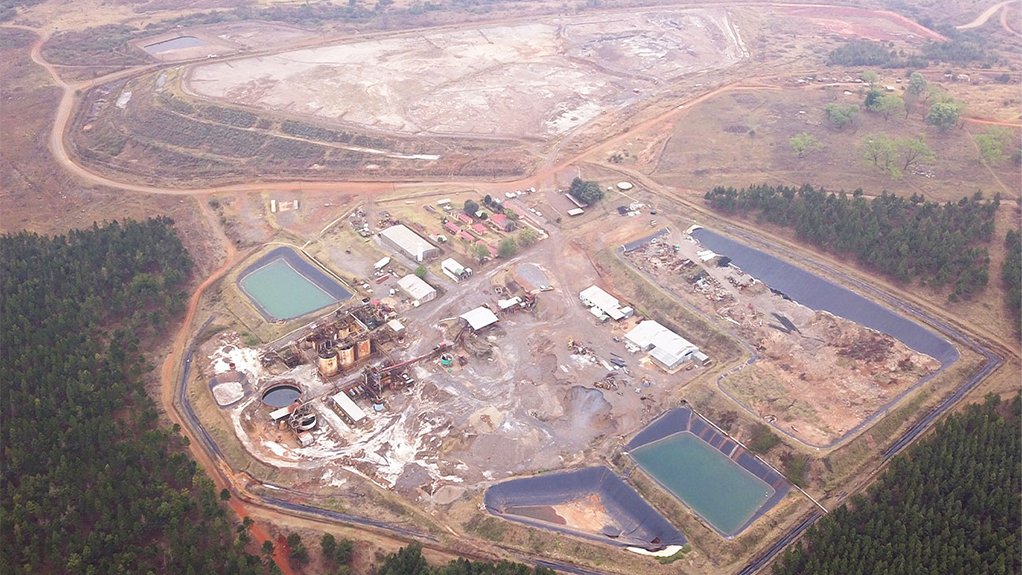Precious Metals

amaBhungane | The #Laundry, City of Gold: How 'fake' mines allegedly feed the illicit gold machine

SARS's attempts to clamp down on gold-based tax fraud have left a massive loophole. The tax agency has expressed concern that alleged roleplayers are now using pseudo gold mining operations to cover for the introduction of illicit gold and VAT fraud into the legitimate supply chain. AmaBhungane has established that SARS is concerned about one operation on the East Rand spending billions on fly-by-night "suppliers", though the owner insists his business is fully compliant.
Now we see how SARS's best efforts to kill this practice may have birthed an audacious new scam: fake mines that exploit a tipper truck-sized loophole in recent regulations. We examine one possible example of how this might work.
Once upon a time, Johannesburg was the world's gold mining centre, dominating global production of the yellow metal. Nearly a century and a half after initial discoveries, the mines of the Witwatersrand produce less than 5% of the world's gold and a significant part of the industry essentially consists of industrial-scale scavenging: reprocessing old mine dumps.
And it is becoming apparent that even some of this appears to be a lie.
In our previous report on the illicit trade, we showed how dubiously sourced gold, especially Krugerrands, has been disguised as scrap sold by second-hand gold dealers in order to feed refineries. This forms part of a colossal tax fraud scheme, with a fair amount of money laundering on the side.
The use of "in-house" pawn shops came to the fore in a case that reached the criminal prosecution stage in 2021, after a group of alleged illegal gold dealers were arrested following an initial case in 2019.
According to an affidavit by Hawks detective Steph Kotzee, the group bought up illegal gold and disguised it as second-hand scrap, which they sold between pawnshops and a refinery they controlled.
The gold, alleges Kotzee, came from illegal mining. As he notes, "evidence is that illegal gold buyers, who procure the unwrought gold from individuals that steal the product from active or derelict gold mines, are supplying unwrought gold to these 2nd hand goods dealers."
Staying ahead of the South African Revenue Service
But old mines are also entering the picture in another important way, and SARS's attempts to quash VAT fraud have prompted what appears to be an even more daring lie: the faking of entire mining operations to provide cover for the introduction of dirty gold into the legitimate system.
Since 2015 SARS has on three occasions made amendments to the VAT regime specifically targeting this fraud but has failed miserably to stem the tide.
The latest attempt to clamp down was the so-called domestic reverse charge introduced in 2022.
Under this system, the supplier of alleged "scrap" gold would be obligated to produce an invoice excluding the VAT, while the refinery buying the gold would instead be required to pay the applicable VAT directly to SARS on the supplier's behalf.
In terms of the new regulatory scheme, invoice factories churning out VAT invoices would become useless because VAT invoices would no longer be a basis for claiming refunds.
But there was a gaping loophole: gold mines were excluded and were thus able to continue to reclaim "input VAT" on their gold production costs.
'It's a gold mine'
Voluminous bank statements and other documents in amaBhungane's possession show how one such alleged operation operates, spending billions on highly suspect "suppliers" that on the face of it have all the hallmarks of companies that only exist on paper.
SARS is aware of the problem. In National Treasury's budget review this year, yet more changes to VAT rules were proposed in order to address the fact that "these schemes and malpractices have now shifted to the primary gold sector".
The revenue service has, moreover, already raided some of these mining companies which, according to the taxman, are not mining companies at all.
For example, last year SARS took an interest in one seemingly extremely lucky mining dump processor named Upward Spiral 1471 – the current holder of the rights over the tailings of the historic East Rand Proprietary Mines, where operations started well over a century ago.
Things here seemingly do not add up, though. Issues with Upward Spiral, if not definitive, show how extremely improbable mining operations have become a concern that has caught SARS's attention.
Lucky strike
According to documentary information, Upward Spiral is managing to extract what is by industry standards a bizarrely high yield of gold from the old waste it is running through its plants.
This yield is supposedly five grams of gold per tonne of material. Major mining companies with dump reprocessing operations struggle to achieve a tiny fraction of that.
By way of comparison, JSE-listed Harmony Gold gets at best 0.53 grams per tonne and on average far less than that out of its tailings reprocessing operations. Its peer, Pan African Resources, manages to obtain around 1.3 grams per tonne, while DRDGold extracts approximately 0.233 grams per tonne.
In other words, Upward Spiral, a smallish operation with no extraordinary new technology, is seemingly consistently managing to process mining waste containing between five and 20 times the industry standard.
It is understood that this unusually high extraction yield from the processed material has attracted the attention of SARS and a look at the company's books suggests there is every reason to be concerned.
Super entrepreneurs
The biggest red flag is a bizarre warren of apparent fly-by-night companies purportedly providing mining-related services and mine dump material worth hundreds of millions of rands.
By amaBhungane's calculations, between February 2022 and July 2023 Upward Spiral spent over R6 billion with a small core of suppliers.
One of these was Soft Metal Traders, to which Upward Spiral paid at least R880 million in this period. Several questions arise. For one thing, Soft Metal Traders' sole director is apparently an employee – Esther Mokoena – whose phone number and address, as listed in company documents, actually belong to her employer, Francois du Toit.
AmaBhungane has established that after SARS made enquiries in June last year, this "supplier" was liquidated the month after.
AmaBhungane could not reach Mokoena by phone and Du Toit did not respond to emailed questions.
Notably, on the same day, another huge alleged supplier to Upward Spiral, named Zonkeziwe Investments, was similarly voluntarily liquidated. This company had received at least R1.1 billion from Upward Spiral before also abruptly going out of business when the taxman came around.
More curious is the fact that Zonkeziwe's sole director, Mahomed Kaleed Mahomed, is also the director of a company named Leedo Investments. The week after Zonkeziwe closed down, Leedo took its place and started billing Upward Spiral millions.
In other words, one company was shut down and immediately replaced with another with the same director.
What is more, Mohamed is actually an employee of yet another Upward Spiral supplier named VPS Haulers, which likewise received hundreds of millions of rands from the mining company.
The likelihood of a single individual fulfilling all these roles is arguably low.
AmaBhungane approached Mohamed for comment but received no response.
Nonetheless, Upward Spiral's books reveal another nearly identical case. A supplier named Dannies Investments was paid R62 million. Its director Dannie Speelman, however, had another company named Spacthes Investments that was also a supplier.
Spacthes was liquidated in December last year and Dannies shortly afterwards, in January this year.
AmaBhungane approached Speelman for comment but received no response.
And then there is Gregton Consultants, which did R170 million in business with Upward Spiral in the period we have data for. Its director, Antonio Csaszar, is also the director of three additional companies that were suppliers to Upward Spiral: Triple Cross Holdings, Siker Services and Osztag Solutions.
Csaszar became a director of all three of these companies in July last year following SARS's letter and did another R180 million in business with Upward Spiral in less than a month.
AmaBhungane approached Csaszar for comment, but received no response.It keeps going.
Yet another questionable provider is M Cubed Corporate Services, a small bookkeeping firm that seemingly moonlights as a provider of what it describes on invoices as "waste".
M Cubed made sales to Upward Spiral of at least R730 million in the period covered by our data but, as in the other cases we described, was liquidated in April this year.
M Cubed also had SARS knocking on the door and was asked to explain who its suppliers were. The answer once again led to entities following a clear pattern: the same individual billing millions through different entities and then abruptly liquidating or deregistering those entities.
According to M Cubed owner Nonhlanhla Mazibuko, the company's main suppliers were companies named Ciaracap and Jayvee1221 Projects.
Ciaracap is, however, also a direct supplier to Upward Spiral, receiving payments of around R200 million in 2022.
As for Jayvee1221, the company's sole director is Eric Jay-Lee Ngcobo, but the contact person is one Leandri Valla, the director of VPS Haulers, the supplier we mentioned earlier that employs Mohamed.
To reiterate, M Cubed itself was voluntarily liquidated in April this year.
Owner Mazibuko was afforded a comprehensive opportunity to respond to the above. While she did provide a response denying the allegations in broad terms, she demanded that this not be published.
What emerges is that a group of related individuals simultaneously ran several ostensibly separate companies that were being paid hundreds of millions by Upward Spiral on a monthly basis. This appears to function like a system of revolving chairs, with companies that bill millions continuously being shut down only for others to take their place. If there is a simple explanation for these practices, none of the parties involved were prepared to provide that to amaBhungane.
Absent an innocent explanation, these companies appear tailor made to serve as a new incarnation of the far more modest "pawnshop" invoice factories of old and the circumstances give grounds to suspect that they simply provide the pretext of real mining expenses.
However, the owner of Upward Spiral, Dumisane Mazibuko, responded in writing that his company is "frequently audited by relevant agencies in the country and, as at the date of this letter, we are not aware of any unresolved areas of noncompliance".
"Upward Spiral is unable to provide any comments on the business activities and or status of its suppliers," he added.
If it does emerge that a case against Upward Spiral has been made around claims for VAT payments, then it would seem to represent a significant loss to the South African fiscus, even taking into account the relatively high value of the commodity in question.
As we explain above, there are hundreds of millions changing hands in these transactions.
Value chains
On the other side of the equation, Upward Spiral's Mazibuko has also invested in the rest of the value chain by acquiring a stake in one of Upward Spiral's main clients, SA Precious Metals.
This refinery's director, Dion Smit, told amaBhungane that this stake is "less than 10%".
"SA Precious Metals has a very robust compliance process and all of our Suppliers are routinely assessed. We do not trade with any Suppliers that do not pass our strict compliance criteria," he told us.




